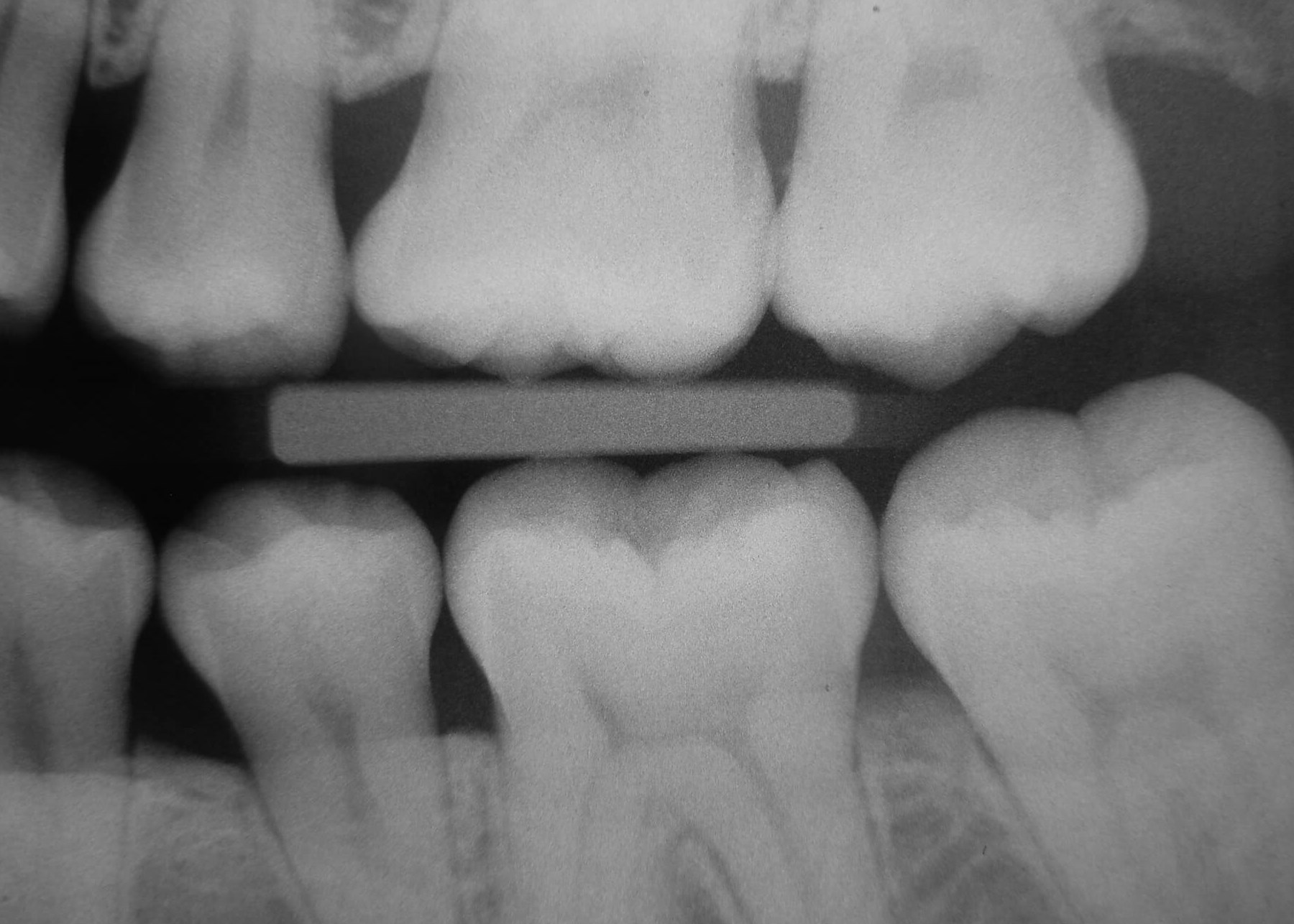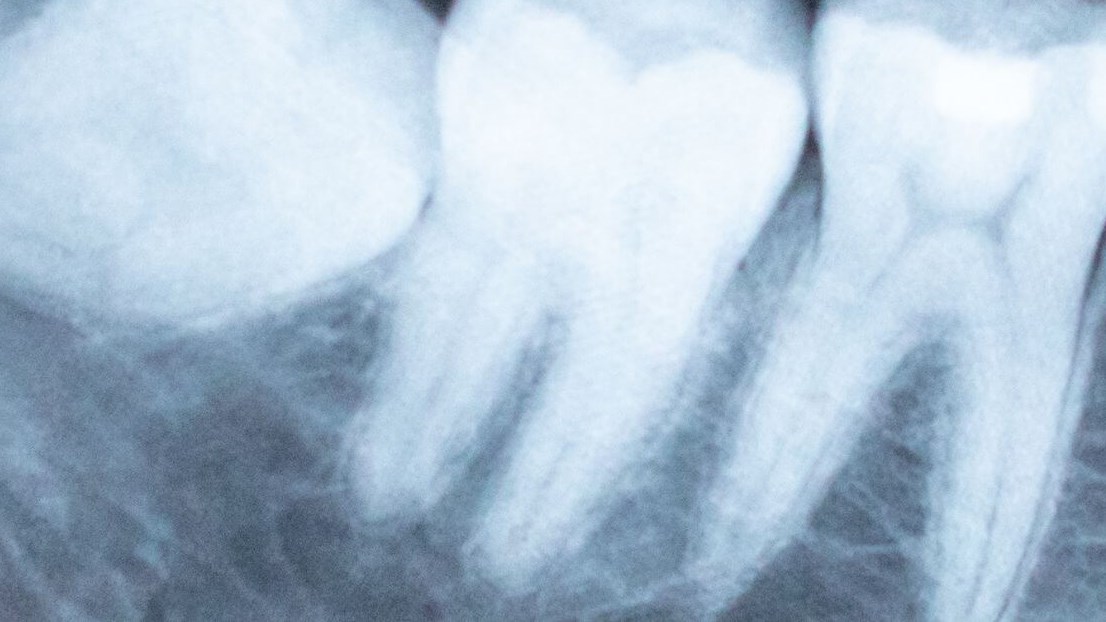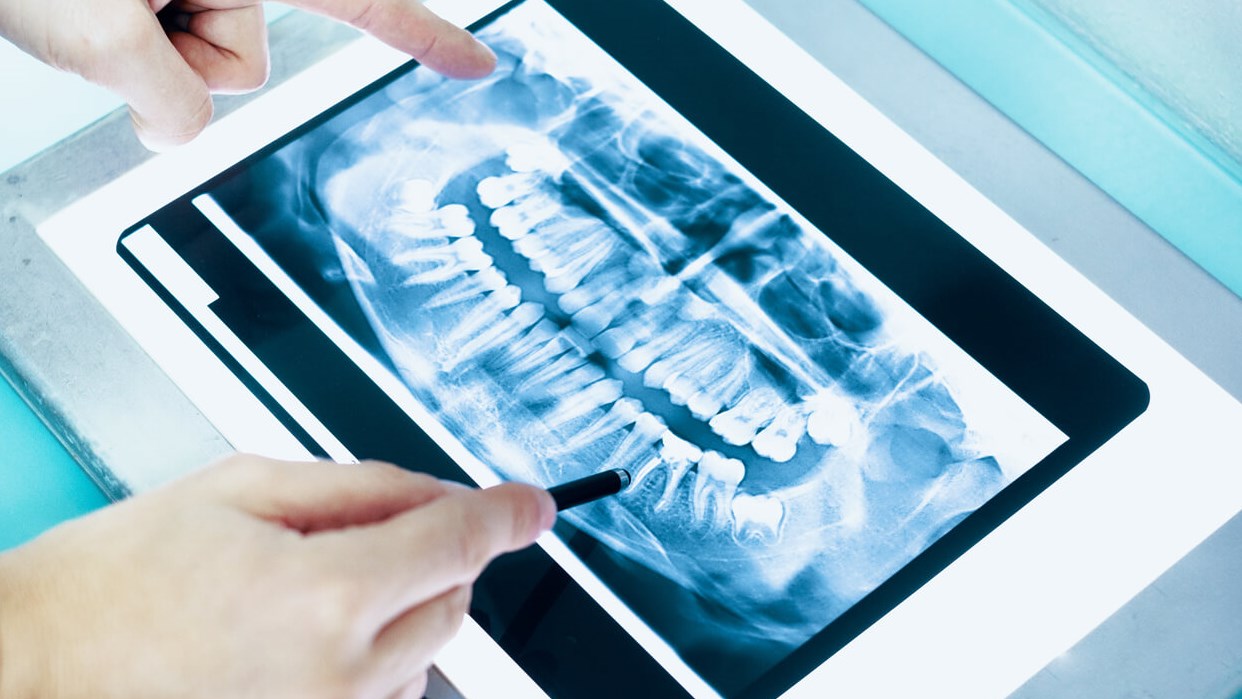ARE DENTAL X-RAYS NECESSARY? 8 REASONS WHY THEY'RE IMPORTANT
Dr. Guy M. Lewis
12/17/2022
Having dental X-rays periodically when you visit the dentist has many benefits. X-rays provide Dr. Lewis with a comprehensive picture of the health of your teeth, bone, and gums. Dental X-rays can detect issues in their earliest stages and are quick and painless. So, are dental X-rays necessary? We believe X-rays are a great way to help keep your teeth healthy, and Dr. Lewis only recommends them when needed. Please look at a few more reasons why they’re essential for keeping your smile vibrant for years to come.
Why are Dental X-rays Necessary?
Many people may not understand why dental X-rays are necessary. After all, your teeth look fine, so why do you need an X-ray?
Dr. Lewis can detect problem areas with dental X-rays that he cannot see with the naked eye. We can identify problems early on, such as cavities, and diagnose more severe issues, such as infections and periodontal and gum diseases.
American Dental Association X-ray Guidelines
The ADA has issued guidelines on using X-rays in dental treatment based on the latest scientific research. These guidelines ensure that X-rays are both safe and effective.
According to the ADA, children with a higher risk of tooth decay should have dental X-rays every 6 to 12 months or sooner. Depending on their dental history, those at low risk for tooth decay may require X-rays every two to three years or more.
Please let one of our staff members know if you are pregnant. We can talk with Dr. Lewis and consult your healthcare provider if you need an X-ray because of tooth pain, infection, or injury.
What Does a Dental X-ray Reveal?
The first thing a dental X-ray tells us is whether you have any teeth that are not visible in the mouth. Some teeth, such as wisdom teeth, may not be causing any problems at the moment but could become problematic in the future.
We also can monitor the health of the bones that support your teeth. Because if there are any problems with the surrounding bone, it can affect the health of your teeth.
Finally, we can detect issues with the teeth. Dr. Lewis can detect and treat any problems you may have.
Here is a list of 8 conditions revealed with X-rays:
- Tooth decay – Decay can be detected as dark spots in X-ray images. X-rays are beneficial in detecting difficult-to-spot decay between teeth.
- Periodontal disease: An infection around the root of a tooth can occur below the gum line. X-rays can tell us what is happening.
- Cracks in teeth and fillings – hairline cracks are frequently challenging to spot on X-rays. They may indicate that a crown is needed to save the tooth.
- Cysts: X-rays can make lumps, polyps, nodules, and gum tissue growths easier to see.
- Cancer: Early detection of bones and other cancers can improve treatment options.
- Infection –X-rays can detect certain bacterial infections or determine whether a root canal has failed.
- Bone loss – Recognizing advanced stages of periodontal disease.
- Impacted teeth/unerupted teeth: X-rays can detect the presence of unerupted teeth or if there is an eruption issue.
What are the Different Types of Dental X-rays?
Intraoral and extraoral x-rays are the two kinds of dental x-rays. Extraoral dental x-rays, such as panoramic and dental scan photographs, are taken outside the mouth. During your appointment at TCCD, you may have had bitewings or periapical x-rays, which are common intraoral x-rays.
What is a Bitewing X-ray?
Bitewings provide a comprehensive view of the molars or back teeth. Based on your dental history, we take bitewings yearly or as often as Dr. Lewis recommends.
These yearly X-rays are crucial to our procedure to provide an in-depth oral exam and cancer screening. They may detect tooth decay or periodontal disorder before they become severe enough to cause trouble.
&srotate=0)
Bitewing X-ray
What is a Periapical X-ray?
We take periapical x-rays, also known as a "PA" or "endodontic view," when we suspect a problem with one tooth or the surrounding bone or nerve. In most cases, this type of X-ray is taken first if you have a toothache.
&srotate=0)
Periapical X-ray
What is a Panoramic X-ray?
A panoramic X-ray also called a "full mouth series," is a broad view of your sinus area, upper and lower jaw, surrounding soft tissues, teeth, and bone.
The X-ray machine captures a panoramic view of your entire mouth by combining several shots as the machine circles around your head. It provides a comprehensive view of but not the fine detail required to identify problems such as tooth pain or sensitivity.
&srotate=0)
Panoramic X-ray
How Often Do You Need Dental X-rays?
There is no one-size-fits-all answer to this question. The frequency we take dental x-rays depends on several factors, including your age, oral health history, and the current state of your oral health. We can take additional x-rays at any time you are experiencing any issues. However, in general, most people will need to have dental x-rays taken at least once every one to two years to detect any problems or changes in the teeth and mouth.
Are Dental X-rays Safe?
Many people worry about whether digital x-rays are safe. The amount of radiation exposure from digital x-rays is minimal.
Our office uses the latest digital x-ray technology using a digital sensor instead of film. The digital sensor is more sensitive than film, requiring less radiation to produce an image. You receive more radiation from natural sources, such as the sun than from a dental x-ray.
Dental X-Rays During Pregnancy
We want to ensure you're getting the best care possible, so please let us know if you're pregnant. The ADA considers X-rays safe during pregnancy when using both the abdominal and thyroid shields during exposure.
If you have tooth pain, an infection, or an injury and need a dental X-ray, we can talk with Dr. Lewis or your healthcare provider if you have concerns.
Reasons Why We Recommend X-rays
1. To help diagnose problems early that may not be visible during a regular visual dental exam, we can treat them before they become more serious.
2. To help plan for treatment for emergency issues, impending treatment, or getting a smile makeover!
3. To monitor changes in your teeth and gums over time. This information can help detect problems early and to ensure you are on the right track with home care.
4. To evaluate the treatment and ensure the results were as intended. Dr. Lewis can make adjustments along the way based on the results of your X-rays.
5. To help identify problems with dental implants, such as infection or damage to the surrounding teeth.
6. To help assess your tooth decay risk and give tips to reduce your risk of cavities based on the findings.
7. To detect gum disease and check the status of your oral health.
Conclusion
At TCCD, we value the information dental X-rays provide. We believe that they are an essential part of maintaining good oral health. If you have questions about dental X-rays, please don't hesitate to ask Dr. Lewis or any of our team members.
We offer premium dental care in a welcoming environment and want you to feel at home when you visit us. Get in touch with us today to schedule an appointment if you have not recently had a checkup, x-rays, and cleaning. We hope to see you soon.
Recent Posts
The Road to Radiance: Teeth Before Veneers
Texas Center for Cosmetic Dentistry has been transforming smiles all over, making a big impact on how people feel about their teeth before veneers.
Teeth Before Veneers: A Personal Guide to Your Smile Transformation
Discover the journey of teeth before veneers and how they lead to dazzling smiles in The Veneer Path with Dr. Guy Lewis in The Woodlands, TX.
Rediscover Your Smile at The Texas Center for Cosmetic Dentistry
Rediscover your brightest smile with Dr. Guy M. Lewis in The Woodlands, TX. Friendly care meets modern dentistry. Join our smiling family!